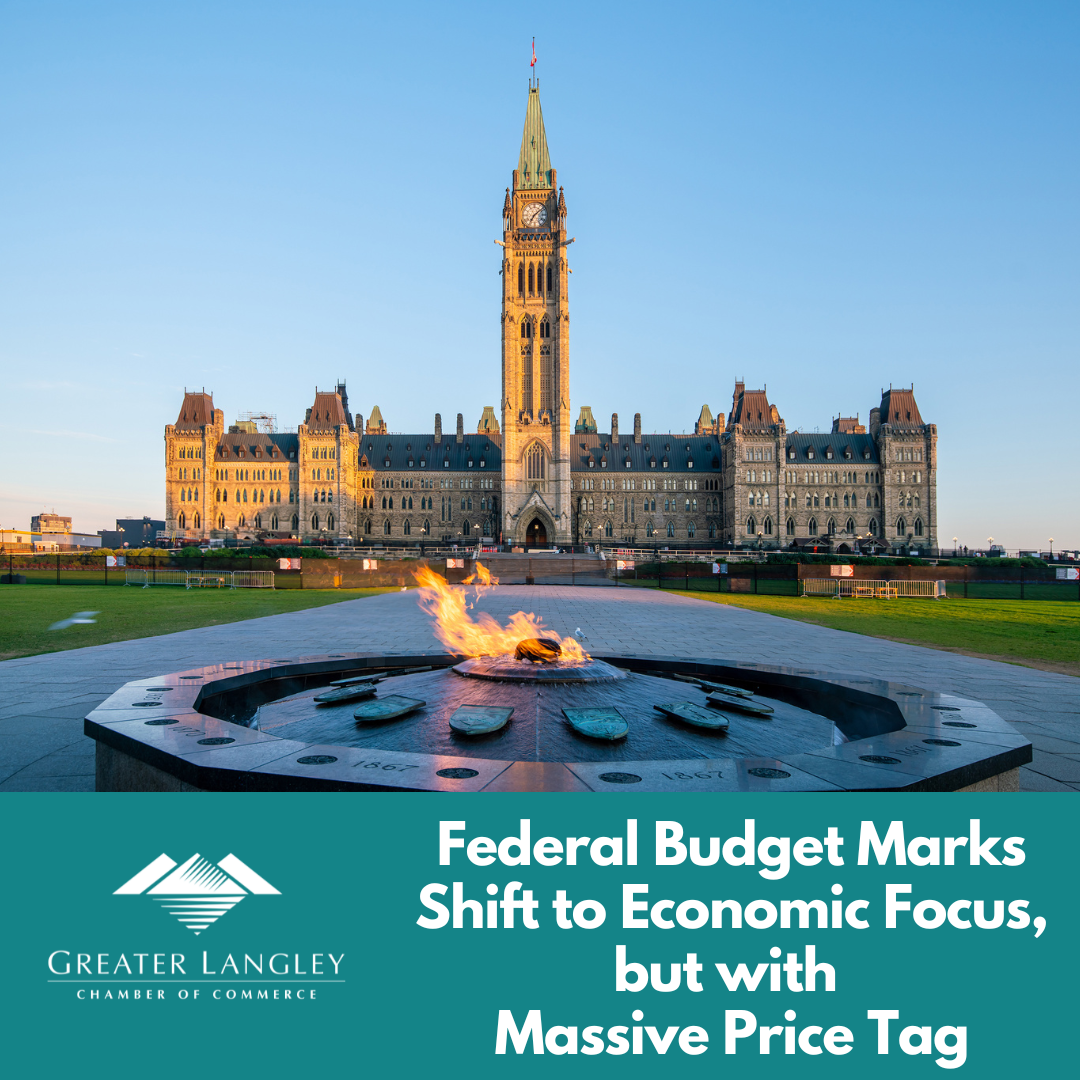Federal Budget Marks Shift to Economic Focus, but With Massive Price Tag
Federal Budget Marks Shift to Economic Focus, but With Massive Price Tag

The Mark Carney federal government delivered its first budget this week, outlining a fiscal and economic plan at a time when Canada faces slow growth, lagging business investment, and global economic uncertainty.
The Langley Chamber is encouraged to see a shift in the government’s language and tone which seems to suggest a long-sought turn to prioritize productivity and economic growth, recognizing the role of businesses in creating opportunity for Canadians and generating the funds necessary for government social programs. That said, the massive $78 billion deficit remains a hefty price to pay for this shift, and more could have been done to contain non-essential government expenditures and to do a thorough review of our labyrinthine tax code.
Commitments to support manufacturing, natural resource development, trade infrastructure, and defence capacity represent steps toward strengthening Canada’s economic foundations and positioning Canadian businesses to compete globally. Moves like the new Productivity Super-Deduction is a positive step that will make it easier and more attractive for businesses to invest in machinery, equipment, technology, and other productivity-boosting assets by allowing a much larger first-year tax write-off.
Efforts to diversify trade and support small and medium-sized exporters are also welcome. Attention to export capacity through more funding for CanExport to support small and medium businesses to explore international export markets and a new SME Export Readiness Initiative to help businesses with limited exporting experience explore these new opportunities is welcome.
Budget 2025 includes a suite of new supports for trade and transportation infrastructure projects, as well as supports for major economic projects, which is welcome as it’s critical that Canada is seen as open for building again. In addition, the budget commits $51 billion over 10 years for a Build Communities Strong Fund to support local infrastructure projects like roads, water and wastewater systems, transit-enabling upgrades, and community facilities. Local governments face a significant infrastructure deficit and this will help leverage provincial dollars to make much needed investments locally.
At the same time, this budget arrives with significant fiscal concern. With an expected deficit of more than $78 billion and rising debt-servicing costs, the fiscal trajectory remains challenging. While the budget includes a return to a fiscal anchor framework and seeks some reduction in program spending and the public service workforce, the long-term fiscal sustainability remains a key concern for the Chamber.
Overall, the budget signals a long-awaited shift toward growth, productivity, and investment attraction. The test now will be execution — ensuring announced measures translate into real-world improvements for businesses here in Langley and across Canada.
As always, the Langley Chamber will continue to advocate for a competitive, stable economic environment that enables our local businesses to thrive.
Read more:
Government of Canada - Budget 2025
Canadian Chamber of Commerce Budget Statement
BC Chamber of Commerce Budget Statement
KPMG – Summary of Tax Changes
